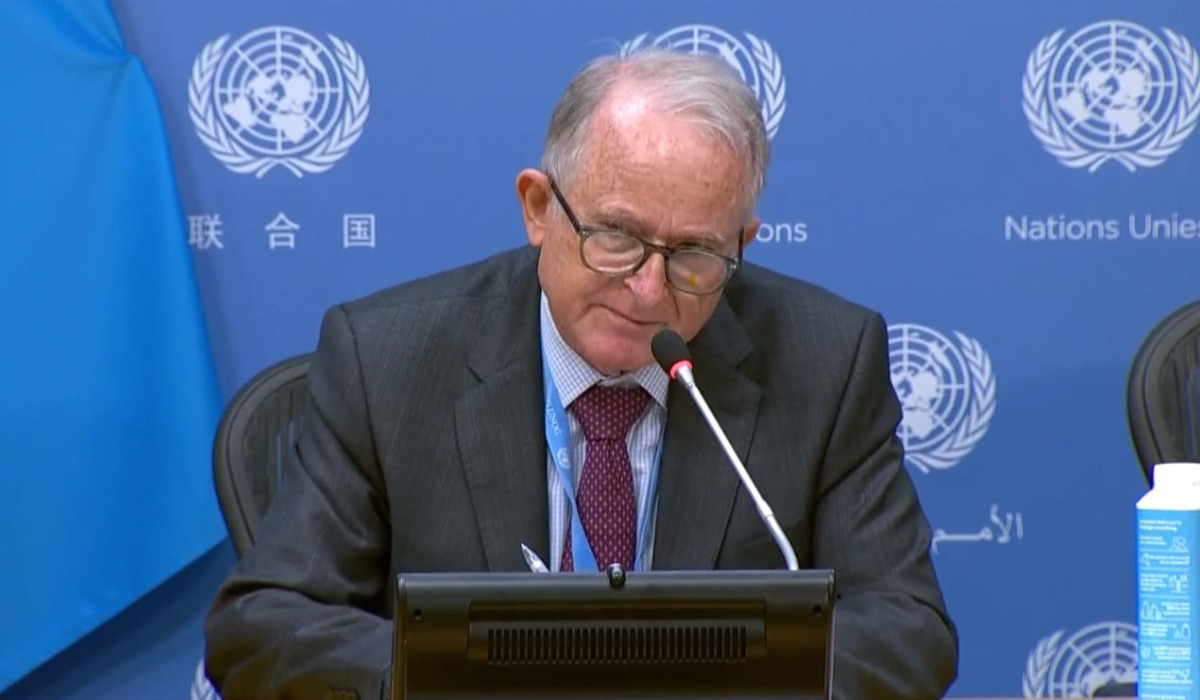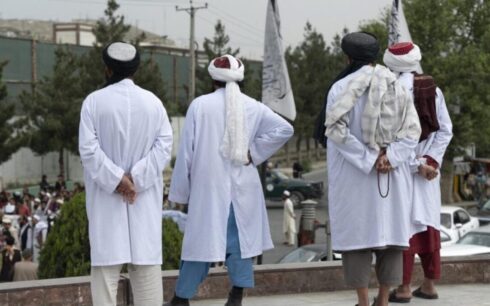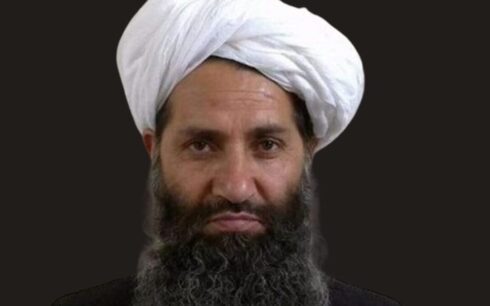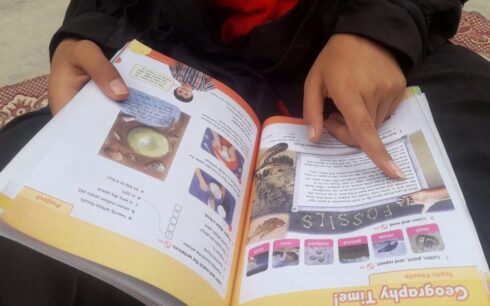Richard Bennett the Special Rapporteur on the situation of human rights in Afghanistan, told a UN Human Rights Council meeting on Monday that the situation in Afghanistan has significantly deteriorated in the past few months.
Delivering his latest report to the UN Human Rights Council, Bennett said when he presented his last report in December, he expressed concern about the deteriorating human rights situation in the country – a situation that the world “seems powerless to address.
“I regret to report that subsequently the slide has accelerated,” he said.
Bennett noted that during his second visit in October last year, he “observed among other things more attacks on the rights of women and girls, as well as on ethnic and religious minorities, greater economic hardship, shrinking space for the media and civil society, a crack down on any form of dissent and despite the amnesty declared by the de facto authorities continuing retaliation against members of the security forces and some employees of the former administration.”
He stated that just two months after his visit there were further “serious setbacks” particularly for women and girls. He said in addition to earlier edicts against them, they were banned from attending university and working for NGOs.
He said however that the Taliban has allowed him to visit the country and continue to engage with him which he said he appreciates. “Not only have there been further exchanges of views, they shared extensive comments on my draft report, some of which have been incorporated.”
He went on to say it’s the responsibility of the council to “continue to grapple earnestly with the tremendous human rights challenges facing the people of Afghanistan”. He also said a strong message needs to be sent to the Taliban that the “abysmal treatment of women and girls is intolerable and unjustifiable on any ground including religion.”
He also said there must be consequences for those responsible for serious human rights violations. “Long-standing impunity needs to be challenged for past and for present crimes,” he said.
He acknowledged that Afghanistan was still a priority for the council but raised the question as to what more could the council do for the people of Afghanistan but added it was also important to “consider what not to do.”
He said people in Afghanistan have appealed to him to not let the “unacceptable become the norm”. Bennet stated that no country can function with half its adult population “effectively imprisoned at home”.
He said during last year, the Taliban increasingly “tilted in an ideologically conservative direction” and that the reshuffling of officials by the Supreme Leader of the Taliban at the provincial level has become more regular and systematic, an indication of the progressive shift in decision-making from Kabul to Kandahar.”
The religious council in Kandahar has become pre-eminent, with the power to override decisions of the cabinet in Kabul, he stated. In addition, the Taliban continues to reject calls for an inter-Afghan dialogue “claiming its administration is sufficiently representative”, he said.
“I recommend that this council should continue to call for a representative and inclusive administration.”
“The future of Afghanistan depends on it,” he emphasized.
Afghanistan’s current representative to the United Nations, who the Taliban does not acknowledge, Naseer Ahmad Faiq also addressed the council and said that Bennett’s report on human rights violations was “just the tip of the iceberg”. He said under Taliban rule the country has descended into “the graveyard of international norms”.
He said the Taliban has failed to meet the basic demands of the people of Afghanistan, and those of the international community “who have generously supported them”.
Faiq said there is no other country in the world where women and girls have been so systematically deprived of their rights and went on to say there is gender apartheid in Afghanistan, “a cruel apartheid” and arbitrary arrests. He said these should be investigated as crimes against humanity.He also noted that many violations are undocumented, and many casualties are overlooked. Faiq said the situation calls for an immediate response by the human rights system. “It’s our common responsibility.”





